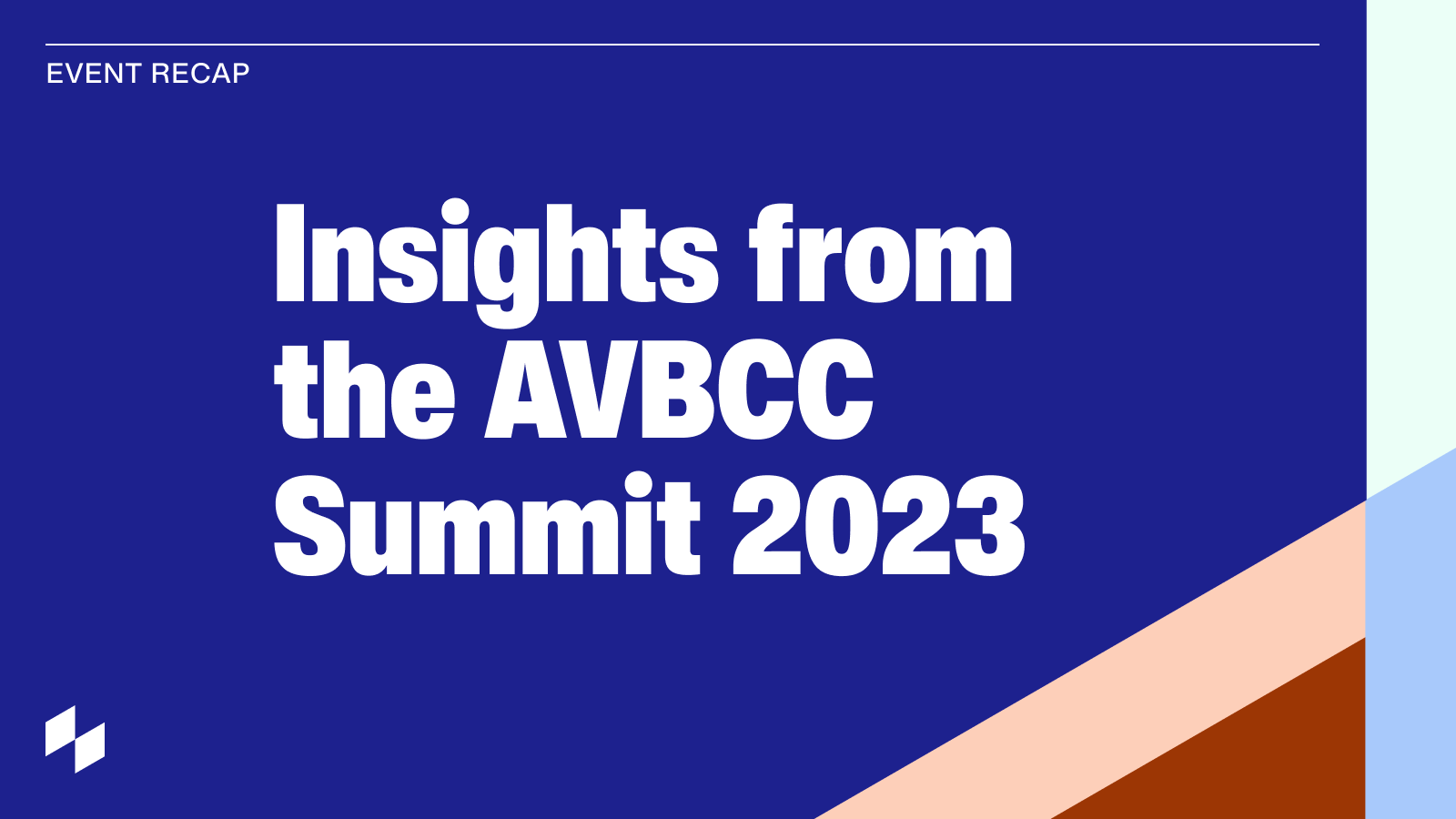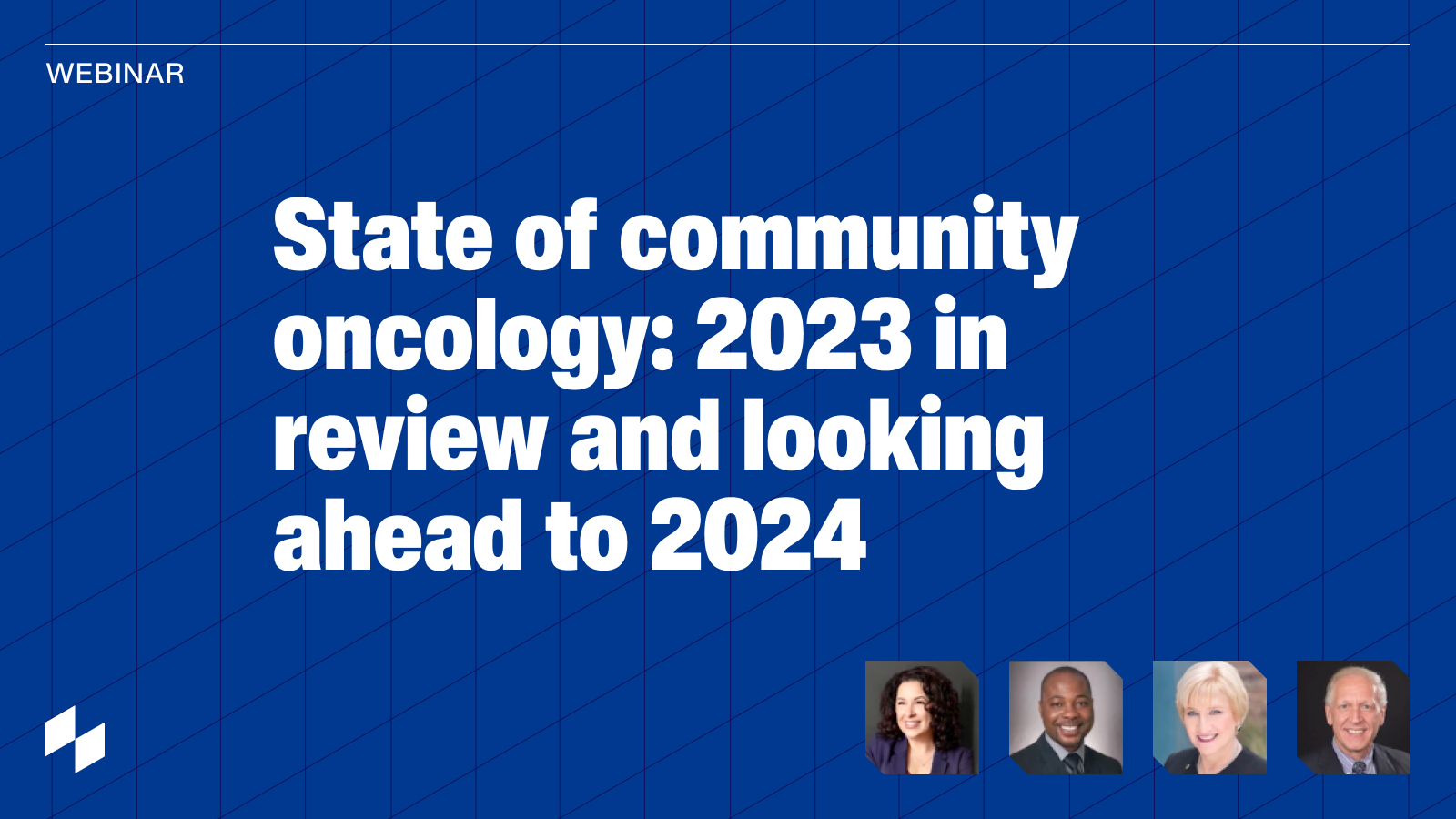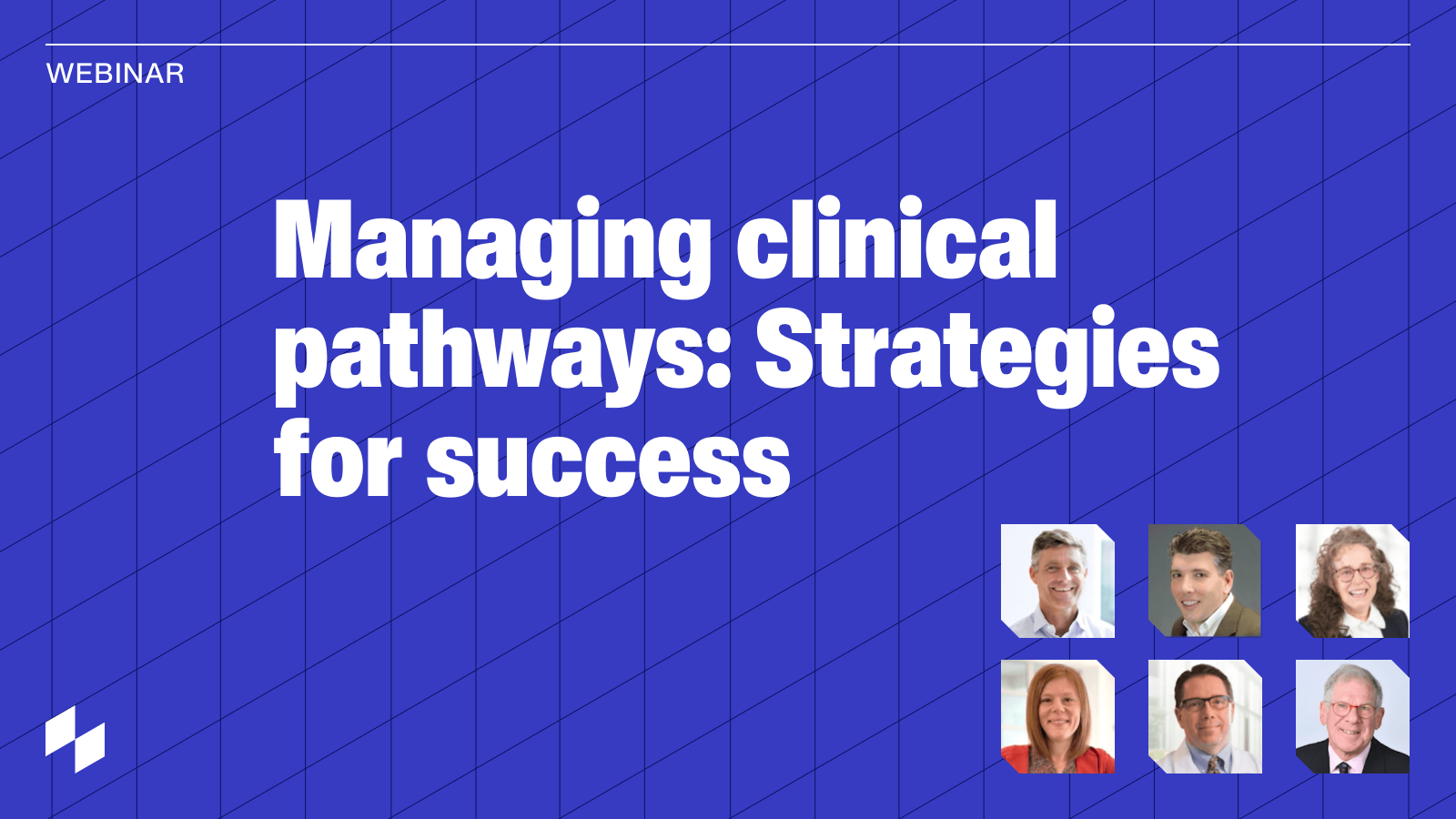Transformation, in any domain, demands a departure from the status quo. In community oncology, this means redefining our approach to patient care and practice operations through a value-based lens.
This transformation towards value-based care was the focal point of a panel discussion I moderated at the 2023 Association of Value-Based Cancer Care (AVBCC) Summit, a confluence of diverse oncology professionals - practitioners, administrators, payers, and policymakers - all driven to collaboratively propel the field forward.
Our panel included experts with diverse backgrounds across oncology:
-
Basit Chaudhry, MD, PhD, Founder, Tuple Health
-
Yale Podnos, MD, MPH, FACS, Chief Medical Officer, The Oncology Institute of Hope and Innovation
-
Jeffrey Scott, MD, President & Chief Medical Officer, Integra Connect
-
Lalan Wilfong, MD, VP, Payer Relations and Practice Transformation, McKesson
Our discussion reaffirmed for me that progress in oncology is best achieved when we work together as partners in the pursuit of solutions.
.png)
Here, I highlight some of the most noteworthy themes that surfaced in our discussion. For more, the full recording is available in the AVBCC Summit video library.
Analytics are the cornerstone of transformative initiatives
Value-based analytics represent the keystone in our collective endeavor to transform practices. By leveraging data, we can transcend traditional care models to deliver treatment that is clinically effective and cost-efficient.
A significant part of our conversation revolved around quality metrics, such as adherence to NCCN guidelines and patient-centered care indicators, which are vital in shaping patient-centric care strategies.
The consensus was that analytics should not only inform our strategies, but also challenge our current practices, pushing us towards continuous improvement. This is where incorporating newer measures like electronic patient-reported outcomes and precision medicine testing metrics can further evolve patient-centered care.
Defining appropriate care
Defining what is appropriate is foundational to measuring value-based care, but it’s not so straightforward. Distinguishing between appropriate and inappropriate care is often multifaceted and context-dependent.
One of our panelists, Basit Chaudhry, MD, PhD, Founder of Tuple Health, highlighted the importance of context in distinguishing between appropriate and inappropriate care. This distinction, often complex and multifaceted, underpins the structure of value-based care models. We delved into how comprehensive datasets and AI-driven solutions can enhance our ability to build context around data for more nuanced analysis, ultimately improving our understanding of care appropriateness and value-based decisions.
Focusing on social determinants of health
The integration of social determinants of health (SDOH) within value-based care is essential. Community oncology has traditionally supported the non-medical needs of SDOH that so frequently emerge, but there's a growing call for structured coding and reimbursement for managing SDOH.
Dr. Jeffrey Scott, President & Chief Medical Officer of Integra Connect, underscored the necessity of tools for capturing SDOH data at the point of care. This integration is not only vital for improving patient outcomes but also crucial for evolving analytics that drive the progression towards value-based care. “This is a golden age of data,” Dr. Scott remarked. “Now, hopefully we'll use the data to improve patient outcomes and improve our lives as well.”
A unified path forward
As we wrapped up our panel, it was evident that the transformation we seek in oncology care is not the responsibility of a single entity - but a collective journey. It is a journey enriched by the expertise of physicians, the insights of data scientists, and the experiences of patients.
In shaping the future of oncology care, let us carry forward this spirit of collaboration and innovation. The road ahead is complex, but with value-based care as our north star and analytics as our compass, we are well-equipped to navigate it.
I extend my deepest gratitude to my fellow panelists for their invaluable contributions and to the attendees who engaged with us in this critical conversation. The AVBCC Summit's mission to foster cross-functional dialogue is more than just an annual goal; it is a call to action for all of us in the oncology community. Together, we are not just anticipating the future of oncology care; we are crafting it.




